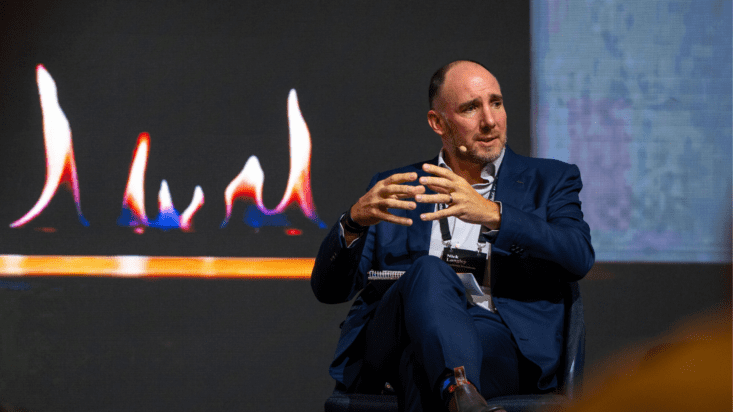Fund managers urged to position portfolios for new era as generations and geopolitics collide
We’re on the cusp of several crucial developments that are set to irrevocably change the current world order, according to Clearbridge Investments founder and managing director Nick Langley. In the next 15 years, money managers that don’t align with these changes will fall behind, the long-time infrastructure investor told advisers at The Inside Network’s Equities and Growth Assets Symposium in Sydney recently.
The world is set to evolve through a “new economic paradigm”, he explained, which (among other things), will form the basis of an asset allocation problem that stewards of capital need to solve.
The first of these changes is the ubiquitous US$50 trillion dollar transfer of wealth from boomers to their Generation X, Millennial and Generation Y descendants. As capital shifts out of low-risk fixed income products the cost of capital will increase, he said, as will the cost of labour when the larger boomer workforce is supplanted by the smaller generations.
“That’s going to mean competition for labour [and] upwards pressure on on wages,” he said. “It’s a trend that will go for maybe the next decade or so, maybe 15 years. And that’s a pretty big deal.”
The transition to renewable energy will reach a flashpoint, he said, as higher populations and complex computing needs puts pressure on decreasing non-renewable sources. “Expensive electricity” can be funded by private enterprise, he said, or government subsidies, but the trend will eventually turn towards renewable sources en masse. That’s when things get interesting for asset allocators.
“The cost of renewable energy is pretty much all upfront, because it’s all in building the facility. Once you’ve got it operational, your sunshine and wind is free. If you go 20 years in the future, your electricity is going to be nearly free. Think about what that means for the way economies are going to work – it may well lead to a massive productivity boom and plays into the decision making processes for governments.
“Where this ends up, frankly, is we have a period like post World War Two, where you’ve got economies running hotter [and] more economic activity, because we’ve got all this infrastructure building going on,” he said. “Inflation is going to be a necessity, but that will lead through to higher wages and we’ll get a spiral that will mean a shift in the share of national income toward labour that’s actually going to reduce some of the inequality in society.”
Those developments are all “big ticks”, he continued, but the cost of labour will be critical in what he compared to the industrial revolution. The importance of labour will only be exacerbated as the world deglobalises and nations regroup according to both the new order and the sanctity of their own food and energy supplies. This revolution won’t take 100 years, however.
“This time we’re going to do it in 30 years and we’re going to go through it the same time,” he said. “All that capital that was invested to create the Industrial Revolution was done over a very long period of time, so you could take profits from early projects and reinvest. You had a luxury of time we don’t have now. So so it’s going to be a competition for capital, and that’s really going to turn things on their head.”
Major nations will re-form, he said. France is well set with good food security, while German is “a bit questionable”. The UK will “cozy up” with the US and the Nordics. Siberia will become “one of the most fertile places on the planet” as global warming takes further effect, which may draw the attention of China, which has no little food or energy security.
For long term investors, all of this matters in the grand scheme of asset allocation.
“The biggest mistake we make as investors is to think that the environment going forward is going to be similar to either the environment that we’ve had or the environment that is shortly foreseeable,” Langley said. “Again… all of this is going to get turned on its head.”











